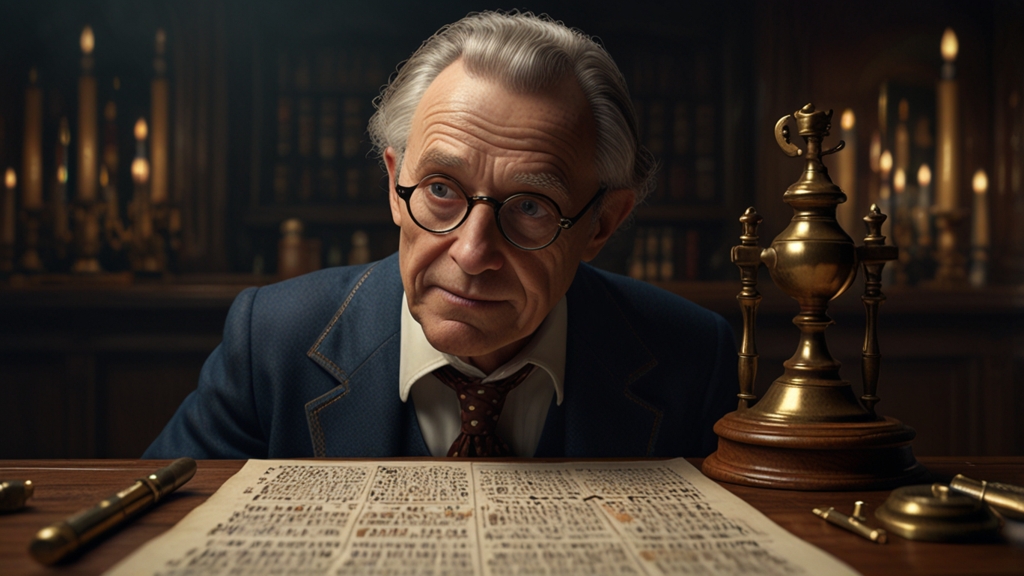The Controversy Over the Old Testament: What Scholars Are Debating
The Old Testament, also known as the Hebrew Bible, has been a critical text for multiple religions for centuries. Despite its revered status, or perhaps because of it, the Old Testament continues to be a focal point of debate among scholars. These debates span across various disciplines, including theology, history, archaeology, and literary criticism. This article delves into some of the most prominent controversies that scholars are currently debating.
Historical Accuracy
One of the primary debates surrounding the Old Testament is its historical accuracy. Archaeological evidence oftentimes paints a different picture from the narratives found in these ancient scriptures. For instance, the story of the Exodus, where Moses leads the Israelites out of Egypt, is a cornerstone of Biblical history. However, many scholars argue that there is insufficient archaeological evidence to support such an event.
"While we have ample evidence of Egyptian history and its interactions with neighboring regions, the lack of corroborative evidence for the events described in the Book of Exodus casts doubt on the historicity of this Biblical account," says Dr. John Smith, an archaeologist specializing in Near Eastern studies.
Supporters of the historical accuracy of the Old Testament counter these arguments by suggesting that the lack of evidence does not necessarily equate to the events being fictitious. They argue that the absence of evidence can be due to the transient nature of some artifacts and the difficulty in pinpointing exact timelines and locations described in these ancient texts.
Authorship and Composition
Another major area of debate is the authorship and composition of the Old Testament. Traditionally, figures such as Moses have been credited with the authorship of certain books like Genesis, Exodus, Leviticus, Numbers, and Deuteronomy, collectively known as the Pentateuch. However, modern scholarship widely supports the Documentary Hypothesis, which posits that these texts were created from multiple sources over centuries and were later compiled by various editors.
"The idea that a single individual like Moses wrote the Pentateuch is increasingly seen as implausible when you consider the diverse literary styles, perspectives, and inconsistencies found within these texts," argues Dr. Jane Doe, a biblical scholar at Oxford University.
This hypothesis has generated significant backlash from conservative religious communities who maintain that the traditional attributions are essential for theological reasons. The ongoing debate about authorship brings to light the complex process of how ancient texts were preserved and passed down through generations.
Theological Implications
The debates over the Old Testament do not merely concern history and authorship but also strike at the core of theological beliefs. The interpretation of certain passages, such as those describing divine commandments, ethics, and morality, has widespread implications for Jewish, Christian, and even Islamic theologies. For example, the differing portrayals of God, as both wrathful and compassionate, have led to varied theological interpretations.
"How we understand the character of God in the Old Testament significantly impacts our broader religious and moral framework. These texts are more than historical documents; they are integral to our faith and practice," states Rabbi Eli Cohen, a well-known theologian.
The theological debates often extend to modern ethical issues, such as gender roles, social justice, and human rights. Scholars and religious leaders continue to wrestle with how ancient texts can provide guidance in contemporary society while staying true to their historical and cultural contexts.
Conclusion
The Old Testament remains a dynamic and contentious field of study. While debates about its historical accuracy, authorship, and theological implications may never reach a definitive conclusion, they enrich our understanding of these ancient texts and their lasting impact on modern culture and religion. Through ongoing research and dialogue, scholars hope to unearth deeper insights and foster a more nuanced appreciation of this foundational religious text.







